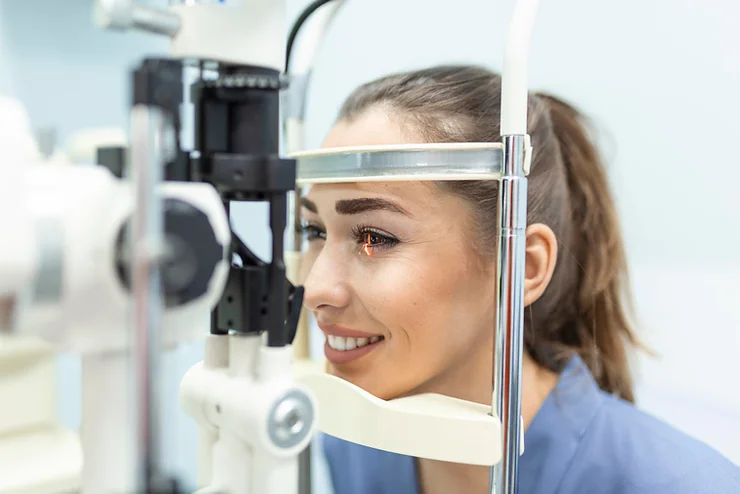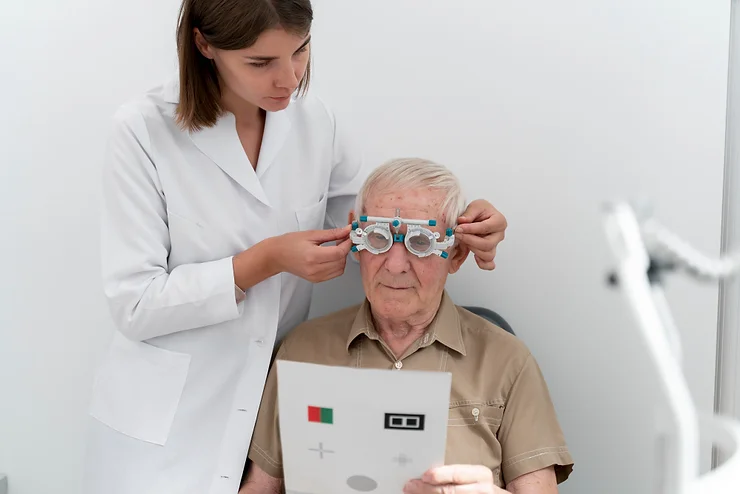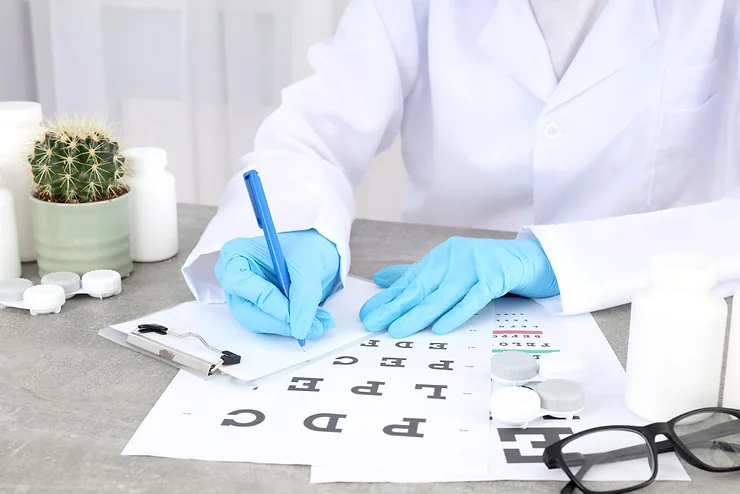
Do not skip regular eye exams
We all have hectic schedules. Routine duties are often overlooked and can build up between family, friends, work, and aspirations for the future. Are routine eye exams something you should consider with everything else you have going on?
The quick response? Yes. If you haven't been getting regular eye exams, now is the time to schedule one.
You can read the full response in our eye care blog, where the importance of getting regular eye exams as well as the frequency of regular eye exams is discussed. Continue reading to learn more about adult eye examinations.
The relevance of routine eye examinations
Professionals base eye examinations on two key principles: prevention and education.
It is evident that not everybody has received instruction on the significance of routine eye check-ups for general health and well-being. Did you know that routine eye exams may provide information about bodily ailments and disorders as well?
Additionally, eye examinations can detect conditions or issues with eyesight that may not show any obvious signals or indications before there has already been deteriorating vision or eye injury. Don't put off visiting an eye doctor until something goes wrong; usually, applying preventive procedures against eye disorders could be simpler than curing them.
What Should You Expect From Your Eye Examination?
Recent studies and findings continuously advance the discipline of optometry. Superior technology is available to optometrists, making eye examinations uncomplicated. All of the tests are performed to provide you with a deeper understanding of your eye health, whether they be advanced technology and innovative testing or optometry standards that have been tried and proven for years.
There are several possible procedures you'll undergo when having your eyes checked, such as:
Presenting your case history. Your optometrist will be able to provide a more thorough image of your eye health with information about your medical background.
A Snellen chart. The traditional Snellen charts, which have letters ranging in size from big to tiny, are used to clarify your prescription
A visual field test. Tests of your central and peripheral vision's sensitivity and scope are known as visual field tests.
Ocular coherence tomography (OCT) and Retinal Imaging. Through ocular coherence tomography (OCT) and Retinal Imaging, the retina and the inside of your eye are imaged.

How Often Should You Have An Eye Exam?
The American Optometric Association recommends having an eye exam at least every two years for adults and older teens (those who have finished high school).
Patients at higher risk
To maintain clear vision and healthy eyes, patients over 65 and every person at higher risk of ocular issues should get an eye check-up annually or more frequently as recommended by your eye doctor.
Eye patients at high risk are:
Patients that have experienced eye problems or someone in their family has a history of eye disease
Patients who wear contacts
People who take pharmaceutical drugs that can damage eyesight
Patients dealing with a long-term serious disease that can impact their vision
People who have a job that demands keen vision or is extremely dangerous to vision
Patients with earlier eye injuries or those who have had eye surgery
People who have undergone laser eye surgery
Those who have any type of refractive error
Keep in mind that your engagement with your eye care team and the health of your eyes are as individual as your eyes themselves. These are only recommendations. To fulfill your visual requirements, your optometrist may recommend an alternative exam schedule.
Cases to Visit your Optometrist Early
It may be appealing to put off bringing up your list of visual difficulties until the next scheduled examination. Nevertheless, there are several eye issues and signs that you need to take care of right away. Your vision may be at risk due to eye disorders, and prompt treatment may be essential for protecting your eye health.
Among the warning signals or indications of an eye emergency are:
Eye irritation
Flashes and floaters that started suddenly
Abrupt cloudy vision
Sudden loss of eyesight
Something alien in your eye
A chemical reaction
Substantial ocular leakage
Corneal scratching
Black spots in the field of vision
Distorted vision
In case you are confused, speak with your optometrist or call our office staff, who can advise you on what to do.

Your Vision Is Valuable
You only have two eyes, so taking good care of them will be a rewarding investment. In case the expenses of eye exams bother you, talk to your clinic about the payment alternatives and find out if the insurance is accepted. Many different insurance companies can receive direct billing from our center. By enabling insurance to cover some of the cost, you can maintain the health of your eyes while keeping within your means.
Everyone Should Have an Eye Exam
Everybody should have routine eye exams, and various needs can be met by specialized exams. Children's eye exams, eye tests for contact lenses and diabetic eye exams are services that many optometrists provide.
If it has been some time since your last exam, don't stress. The goal of your visit to your optometrist is to receive the finest eye treatment. You have the opportunity to complete your own health and well-being puzzle by scheduling an eye check-up.








